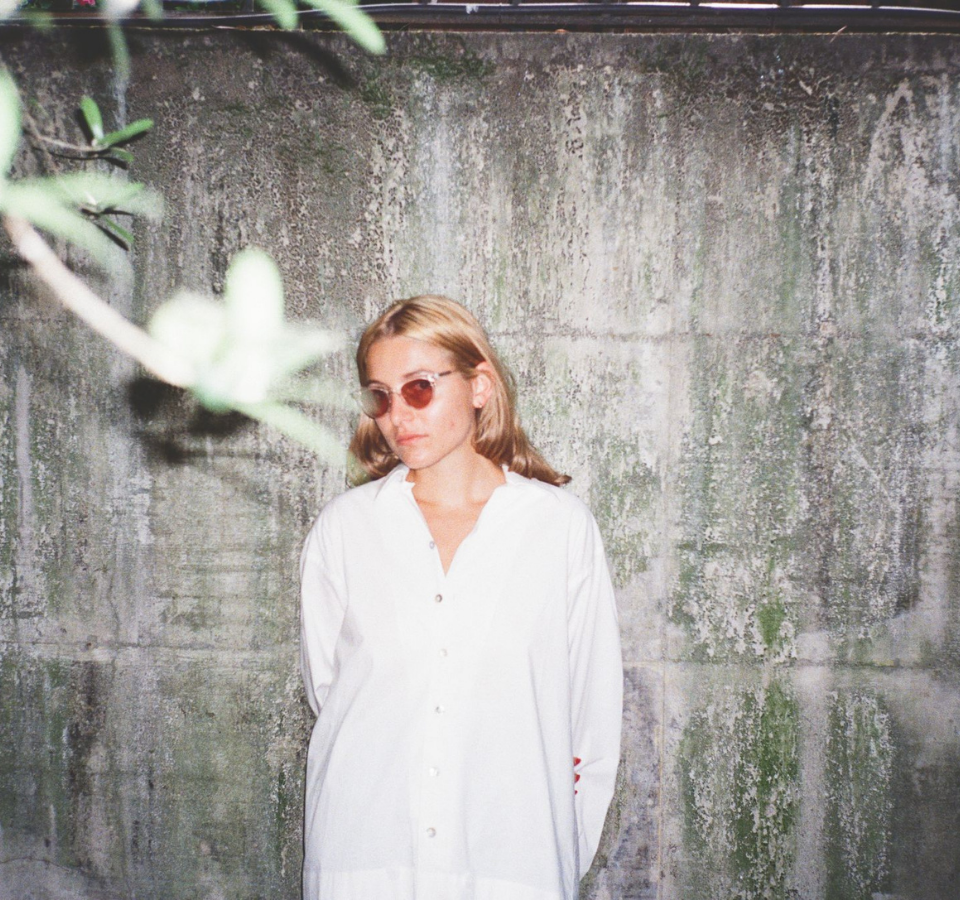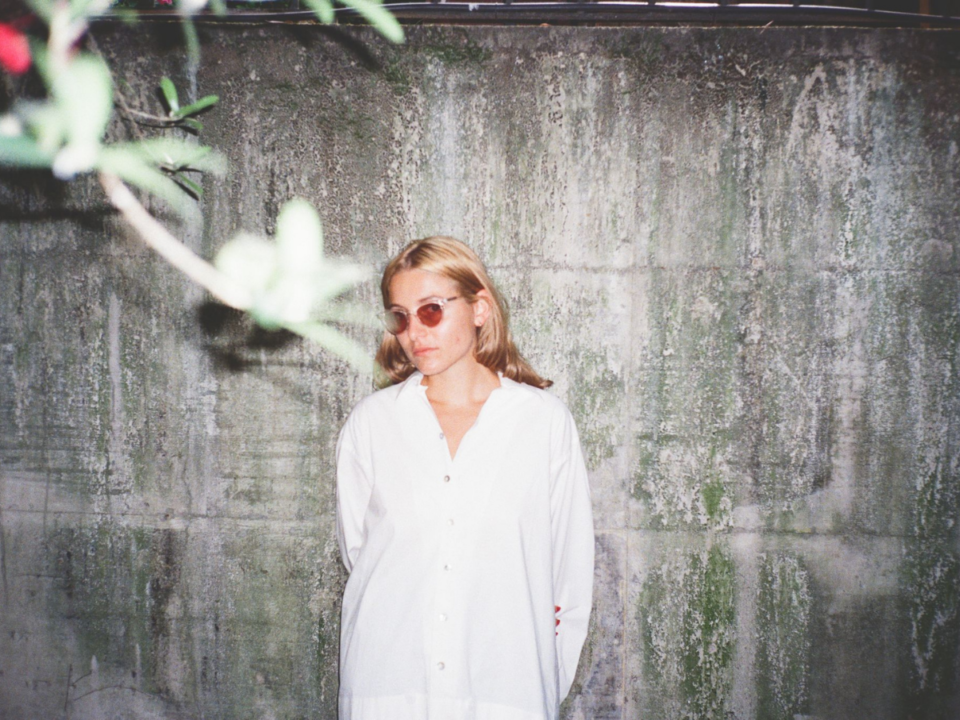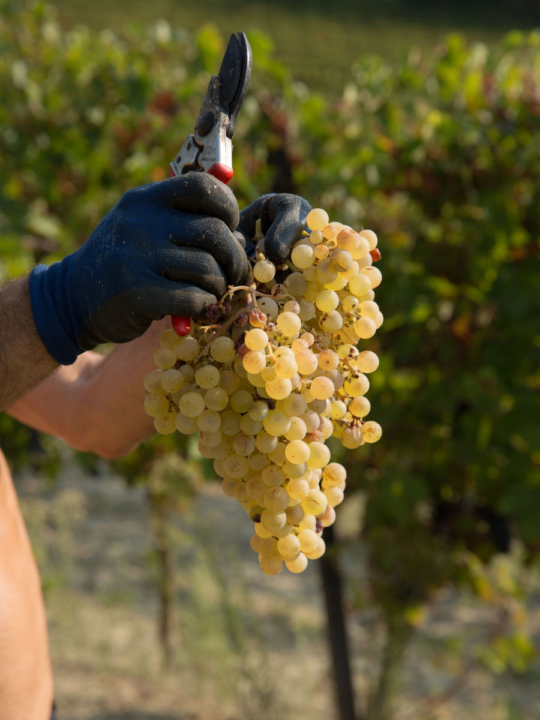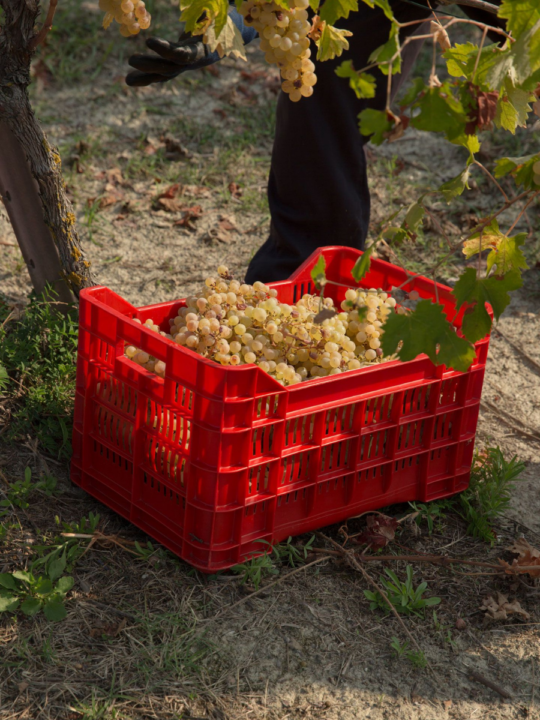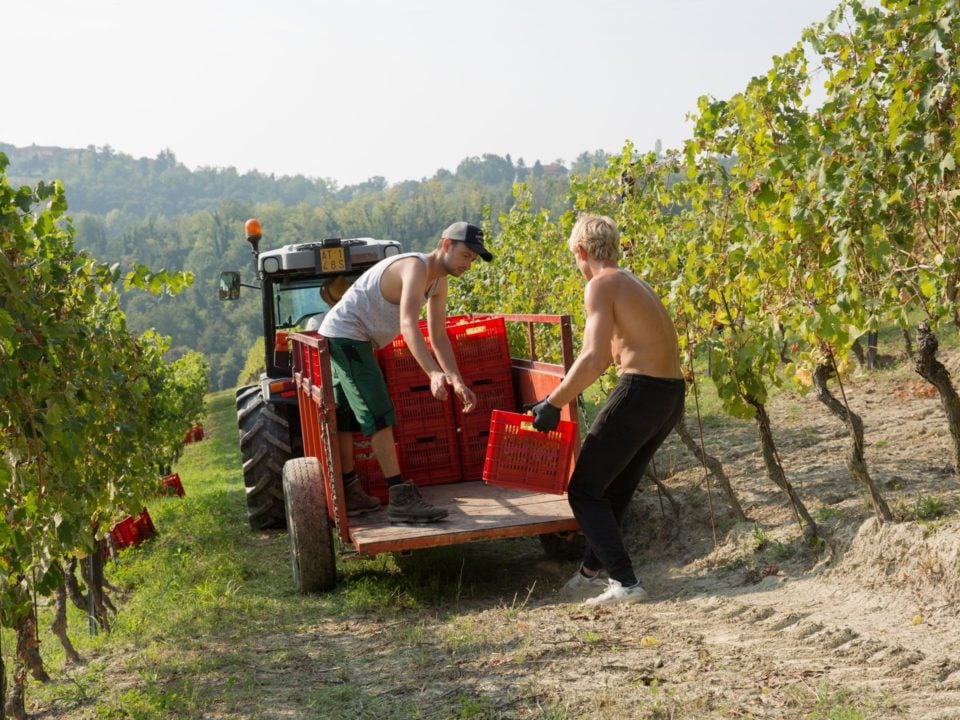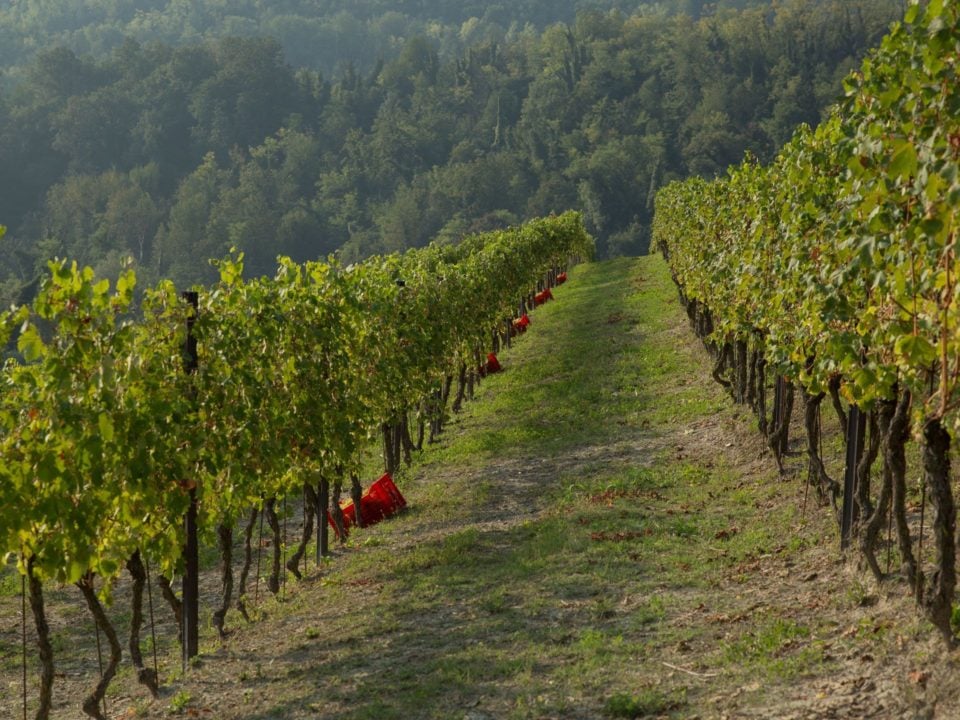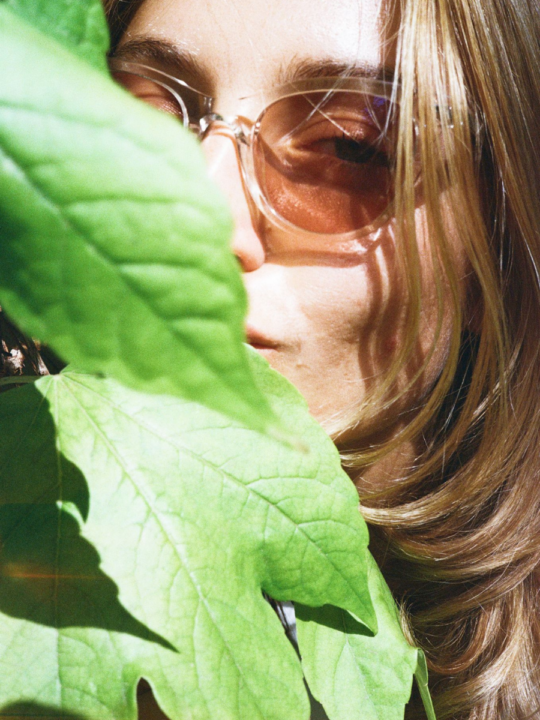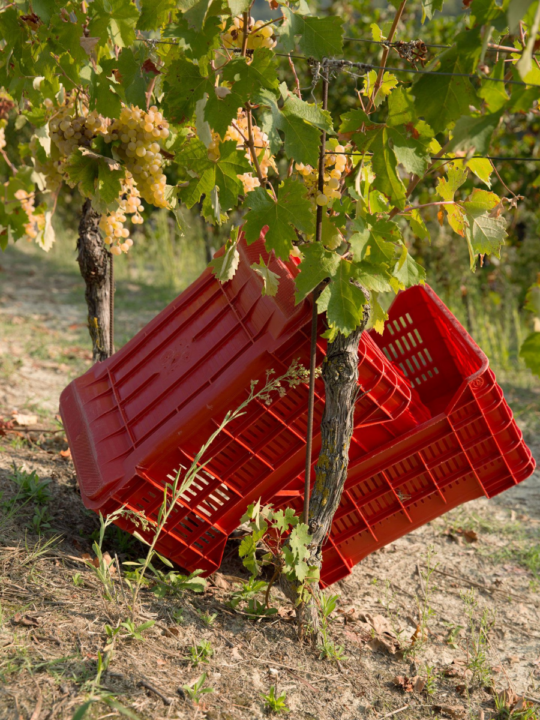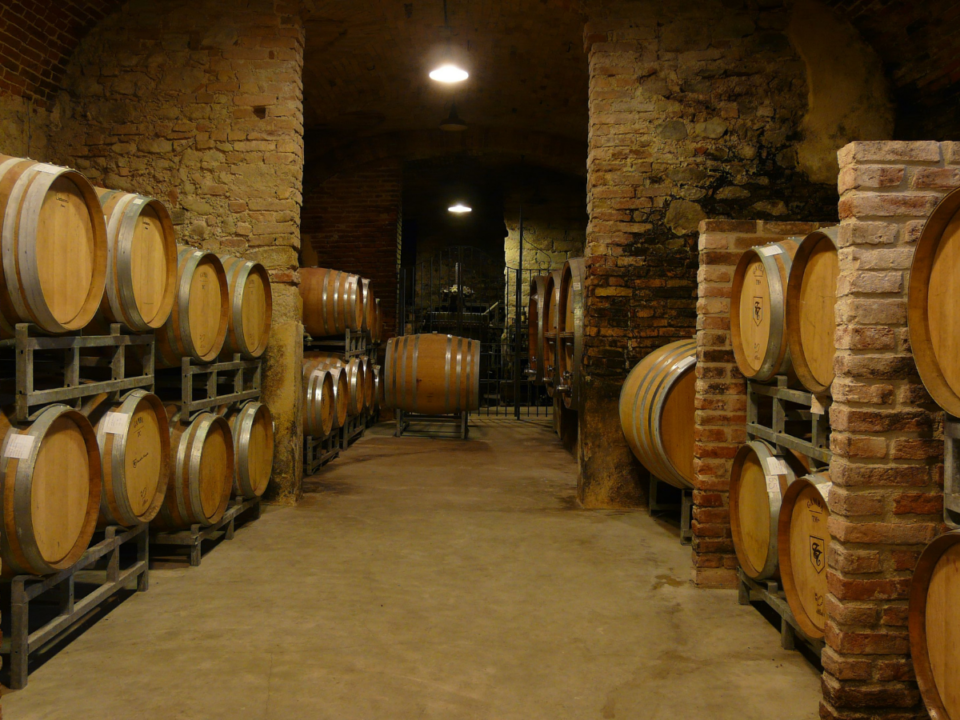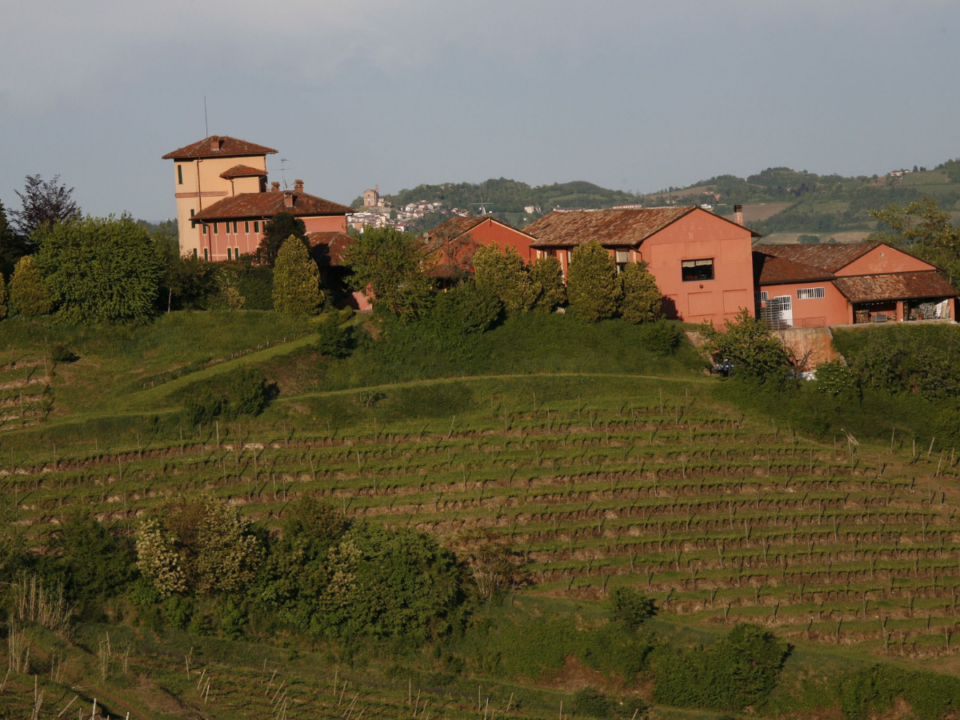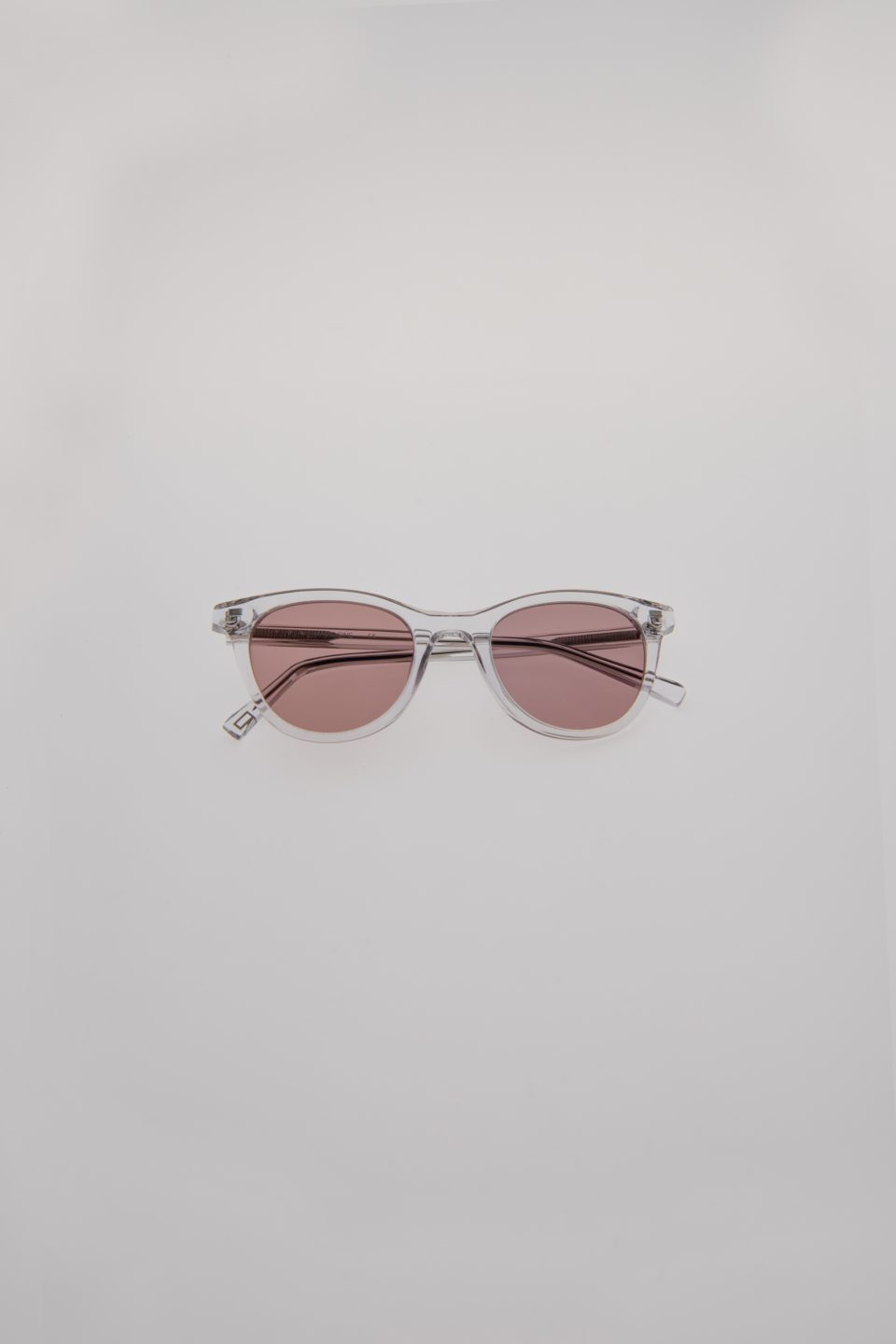ISABELLA EHRMANN: TRAVERSING THE TIMELESS AT THE INTERSECTION OF WINEMAKING AND CONTEMPORARY CULTURE
Coming from her Italian-German background, it was natural to her that Isabella Ehrmann’s career would oscillate between two worlds, one ripe with tradition and rich culinary history, the other leaning into modern, refined sentimentality.
After studying Design at Parsons Paris, Isabella began her path within the fashion industry, working for independent publications such as The Travel Almanac where she served as Digital Editor, and as an art direction consultant in editorial and space design in booming cultural capitals Berlin and Paris.
Her love for all things timeless eventually led Isabella to dedicate more of her time working with her mother’s family business, Tenuta Tenaglia, a renowned winery in the region of Piedmont, Italy. Here, she has brought her knowledge of the creative industry and image creation into new exciting formats, putting together an art residency in December 2020, where she invited an international team to produce an erotic calendar at the vineyard in support of the humanitarian causes of activist Aboubakar Soumahoro.
Now based in Milan, Isabella is using her vision to open up a channel in which social innovation meets heritage, with Italy’s design and economic hub as a backdrop. By exploring the intersection between culture and the culinary world, she represents the vanguard of young creatives working to redefine the way we look at the food and beverage industry, both in Italy and globally.
HOW DID YOUR UPBRINGING AFFECT AND SHAPE YOU?
As a small child, I lived in Bavaria, but my parents soon decided the winters there were too long. So we moved to Italy, on a small island near Naples. I think growing up by the sea is something that shapes you, and can also create a water dependency. I love big harbors like Naples, as I feel people are quite magnetic and vivacious where there is a history of commerce and multi-cultural integrations.
CAN YOU TALK ABOUT THE HISTORY OF TENUTA TENAGLIA, AND WHERE YOUR FAMILY FITS INTO THAT HISTORY?
Tenuta Tenaglia was built in the 17th Century by Giorgio Tenaglia, a historic figure from Mantua who used to defend the North of Italy from Spanish invasions. He was breeding horses, making wine and commissioning artworks in his spare time. Later on, my grandparents decided to buy the winery, and my mother continued what they started. I love supporting her business by bringing new ideas and continuing to learn about the craft of winemaking.
HOW DOES TRADITIONAL WINEMAKING FIT WITHIN ARTS AND CULTURE?
I find it natural to connect culture and winemaking. We often use the location to host creative projects — we started with photo projects and are excited to see what else can happen under the influence of a good glass of wine. I studied design and have always been working with different creative minds connecting visions and ideas.
I started in the independent publishing/editorial scene, and that led me to give an editorial approach to most projects. I like ‘editions’. In wine, we also have editions — vintages, limited editions. I like the analogy between publishing and wine making. Instead of reading, you’re drinking and talking about the unexpected. Our latest project at Tenuta Tenaglia is called “Blue Elixir”, a limited edition blend of Syrah, Barbera and Merlot from a late harvest.
CAN YOU TALK ABOUT THE ARTS RESIDENCY AT TENUTA TENAGLIA?
The idea is to use our space to host some creative minds. It is still quite small for the moment. I wanted to do a humanitarian project during the pandemic in 2020, and began developing the idea with Sardinian art director Roberto Ortu. We wanted to bring new life to the estate. During the first residency, we created a photo book/calendar to support under-paid minorities in the food-chain industry in Italy.
WHAT IS THE PROCESS OF CREATING A BRAND NEW WINE?
Mother nature decides what is happening, so the usual day can vary depending on how the vineyards and the vines behave. The most magical,intense moment is the harvest. We pick all the grapes by hand, then select the best grapes and carry them in. Usually it’s an eight hour long process that can last up to four weeks. What happens in the cellar is alchemy. The wine-maker blends different wines from different barrels in order to create the perfect combination for each wine. A typical day in wine-making is sensorial and physical. It requires stamina and patience.
WHAT DOES THE FUTURE OF WINEMAKING LOOK LIKE TO YOU? IS IT A CRAFT THAT WILL BENEFIT FROM THE INPUT OF A NEW, YOUNGER GENERATION?
Due to climate change, many things are evolving in wine-making and I am sure that this can help a younger generation get in touch with nature, to feel grounded and to understand the times we live in. There are many researchers stating that with higher temperatures, more countries will produce wine and that grapes will “migrate” north, meaning for instance that some German grapes will be harvested in Scandinavia and some Italian grapes will be harvested in Germany.
We can already see today that Sweden and England are countries producing more and more wine. The future of wine-making looks very international. I think this will challenge wine-makers to be open-minded and to gain flexibility in the understanding of the correlation of the climate and the grapes. Wine and food crafts literally bring me down to earth in such a fast-paced digital life.
THERE SEEMS TO BE A REVIVAL OF YOUNG PEOPLE GETTING INTO THE FOOD AND BEVERAGE INDUSTRY IN ITALY.
It’s refreshing to see more young people getting into fine food and drinks and developing original dining concepts with a touch of nostalgia. Italian food culture is embedded in an Italian upbringing. It is one of the most beautiful, true stereotypes about Italy. I love seeing young chefs and young entrepreneurs taking the industry to the next level while considering the circular economy by sourcing materials from small businesses and bringing sustainability to tradition.

